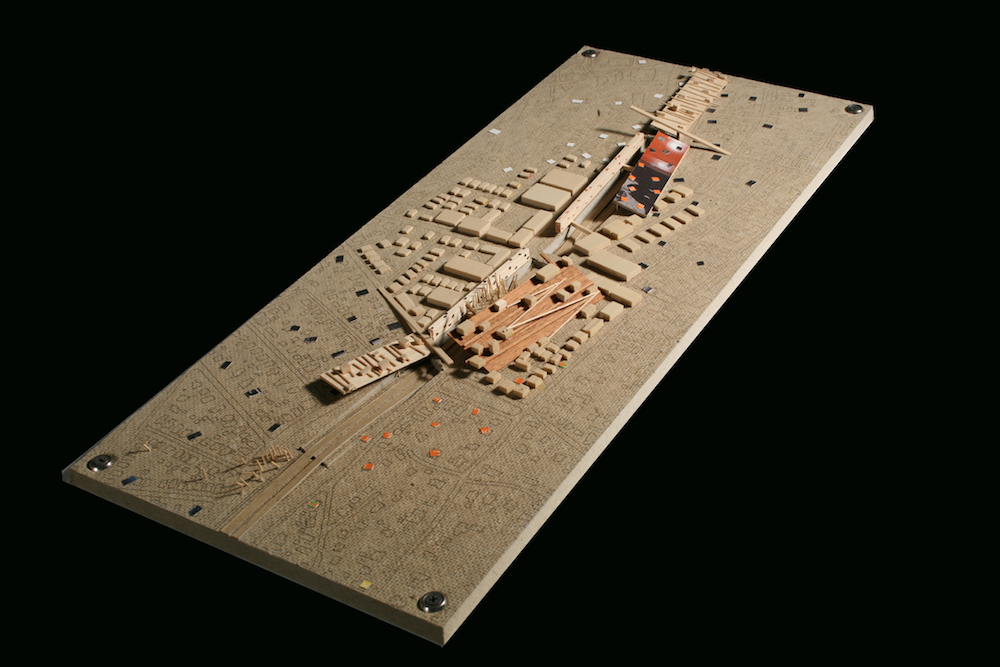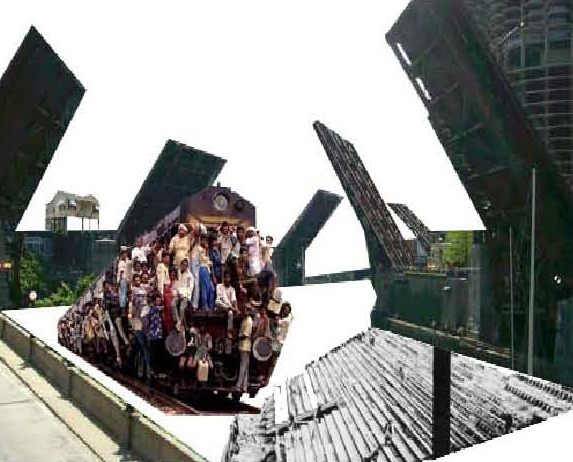Case Study Site A: car culture cut



Instead of mitigation, ramp up the intensity by adding additional light industry alongside medium density residential.
Create additional pocket gardens in the protected older neighborhoods.

Case study site A: car culture cut
James Brown
This is a site where the highway is in a trench that divides a vibrant town center. The project celebrates and intensifies the freeway experience, while creating discrete public accessible green space within the nearby neighborhoods.
Rather than mitigate the damage done to this neighborhood by the insertion of the freeway, this proposal increases the energy surrounding the cut, enhancing a transportation node.
Strategies/Interventions:
Create two, parallel cities that coexist. Intensification and celebration of the vehicle can create an edge against which the old neighborhoods can reliably stabilize.
Development along the corridor will not only increase in density, it will change in use, allowing light industry to coexist alongside medium to high density residential.
On an incentivized voluntary basis, relocate structures from the surrounding neighborhood onto manufactured terraces that form the perimeter of the intervention. The vacated parcels in the neighborhood will become community gardens and pocket parks. The relocated houses become conceptual sandbags against which the pulsing commuter node strains.
A dike of intense activity protects and supports the surrounding residential neighborhoods.
Sustainability agenda:
Intensified development and liberal rezoning is captured in a location that is already urbanized and can be served by transit.
Old neighborhoods gain shared public space.
Regional participation in production.
In all regional systems, we should embrace industry and production, even as we strive to cleanse our planet. We have become a nation of middle men who do not produce anything ourselves. We have been taught that to make is not a noble way of life. That must change. To sit back and direct is a luxury that is no longer possible. We will return to the age of the master builder. We will no longer suggest, we will insist.